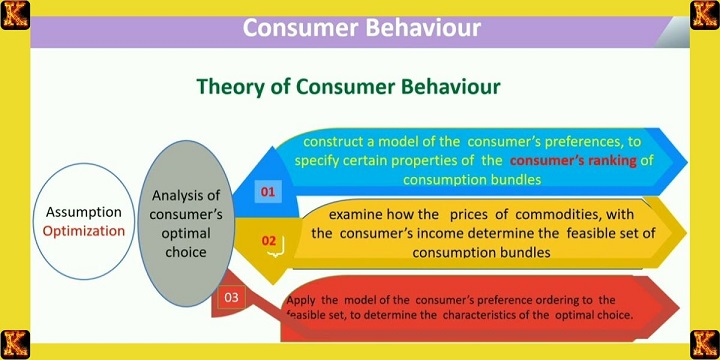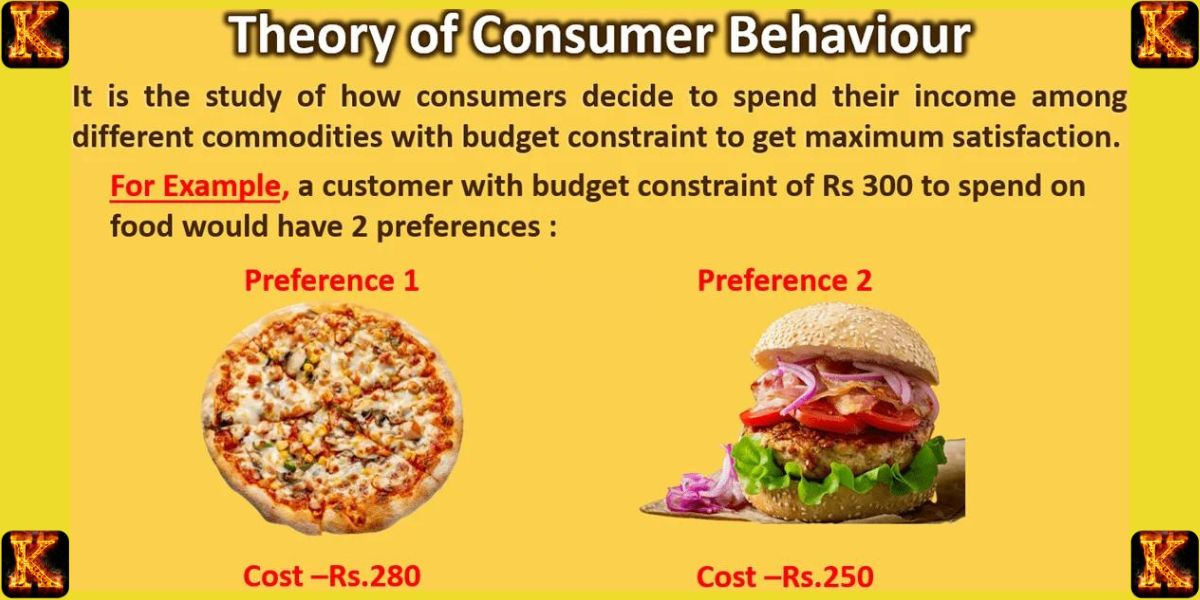Title: Impact of Disposable Income, Social Media, and Cultural Values on Online Shopping Behaviour in Kuwait
Name
Program, University
Course
Instructor
Date
Impact of Disposable Income, Social Media, and Cultural Values on Online Shopping Behaviour in Kuwait
Chapter One: Introduction
Background of the Study
Online shopping is the purchase of goods and services over the Internet through web browsers and applications. The buyer selects and pays online, and the commodity is delivered. This type of shopping, also known as E-commerce, has become an integral aspect of modern commerce, allowing consumers to conveniently purchase without entering a physical store. By 2023, over 99 per cent of Kuwait's residents had access to the Internet, which has catalysed the growth of e-commerce in the country. The average Kuwaiti resident makes five online purchases monthly, with 11.45 billion Kuwaiti dinars worth of online purchases made over the first quarter of 2023 (Al-Qudah et al., 2024). The COVID-19 pandemic played a critical role in sparking the meteoric rise of online shopping, as the lack of access to physical stores diverted people to e-commerce (AlTarrah et al., 2021). Therefore, more consumers have become accustomed to buying commodities on online platforms and having them delivered to their homes.
Disposable Income in Kuwait
Despite the overall rampant usage of online shopping, there are nuanced differences between individual online shoppers based on their level of disposable income. Disposable income is the amount of money an individual or household has after paying for their essential expenses, including taxes. In 2023, the Kuwaiti per capita disposable national income was about 10,000 Kuwaiti dinars, making it the second highest country globally after Qatar (Bilaus & Garcia-Feijóo, 2022). Given that Kuwait is a petroleum-based economy, it was the wealthiest country per capita by the end of 2023. Kuwaiti residents generally have more disposable income to spend on consumer online shopping.Cultural Values and Expectations
Due to its rich cultural heritage and distinct social structure, Kuwait provides an incredibly unique setting for studying online shopping behaviour. Cultural values, including collectivism and respect for family and tradition, impact the individual's perceptions and behaviours in online shopping (Mardhatillah, 2020). This includes their online shopping approach, trust in digital transactions, and preference for particular products and brands. Furthermore, social norms also shape consumer behaviour in online shopping. For example, family and community members' opinions and past experiences may influence individual choices in online shopping. Social expectations and trends also impact consumer patterns, particularly in ecommerce, where the shopping experience is more instantaneous, thus facilitating impulse buying. Consumer behaviour in online shopping is multifaceted, and social, psychological, and financial factors play critical roles. Disposable income brings an economic aspect to online shopping, as more disposable income allows individuals or households to make more online purchases (Han, 2020). This, however, does not happen in a vacuum, as culture and social norms impact the choices made by consumers in online shopping. Unlike in business, where all decisions are made pragmatically, some consumer behaviour is influenced by the consumer's sentimental needs, such as a sense of belonging. Therefore, studying the interplay between disposable income and cultural values and expectations will help understand consumer behaviour in Kuwait, particularly in E-commerce.Role of Social Media in E-commerce in Kuwait
Over 96 per cent of the residents in Kuwait and expatriates have access to social media. The country's most used social media platforms include WhatsApp, Instagram, Facebook, and TikTok. These social media platforms play a critical role in shaping not only e-commerce in the country but also consumer behaviour while shopping online (Alsabt, 2021). This is why ecommerce platforms and vendors on these platforms advertise heavily on social media. The sellers can target audiences that are likely to purchase a product based on their social media activity data. Some online e-commerce platforms and vendors use social media influencers to increase online engagement with the product. The influencers create engaging content that features the commodity, provides visual demonstration, and reviews it to persuade consumers to use it. This content is usually shared across the leading social media platforms. On the other hand, the audiences get to share their opinions about the commodity by commenting on that content. Social media significantly influences culture as users engage with each other in real-time. Therefore, it influences the individual's behaviour and behaviours on online shopping platforms. Thus, social media is a catalyst for the propagation of cultural norms and values across society (Ausat, 2023). This is because social media enhances the traditional word-of-mouth recommendation, which shapes the individual perception of commodities and brands. The recommendation from peers is, at times, more impactful on consumer behaviour than the social media influencers. However, all these are intertwined on social media platforms. Social media also facilitates the fast propagation of cultural trends. A particular commodity like air fryers and brands can gain popularity quickly on social media, influencing users to purchase them. Social media users change their identities with peers and people from different cultures. This facilitates the cross-cultural exchange of ideas, cultural brands and products. Therefore, social media is critical in influencing consumer behaviour, particularly online shopping in Kuwait (Thanasi-Boçe et al., 2023).Research Problem
This qualitative study explores the impact of disposable income, social media and cultural values on online shopping in Kuwait. The researcher needs a more nuanced understanding of how the three factors impact consumer behaviour on ecommerce platforms beyond the interpretation of statistics. This study shall, therefore, explore the extent to which the level of disposable income included online shopping behaviour in Kuwait. This includes how much a higher disposable income will affect the individual’s online shopping behaviour. The researcher will also examine how social media use has influenced consumers' online shopping behaviour in Kuwait. Here, the study shall consider social media trends and influence from peers and close family as propagated via social media. Finally, the researcher will link this to the cultural context of Kuwait by exploring how culture influences consumer behaviour.
Problem Statement
Past studies have explored the impact of income on consumer behaviour and point out that disposable income is one of the most influential factors of consumer behaviour in general. However, limited studies have focused on online shopping as a facet of consumer behaviour. Similarly, social media has been shown to influence individual consumer behaviour. However, this has not been elaborately contextualised in online shopping. Furthermore, the researcher recognises the impact of culture on consumer behaviour, but there is limited understanding of how culture and social norms impact behaviour on social media platforms. In general, there is a need for a study that provides a nuanced perspective on the dynamics of disposable income, social media, and cultural norms and contextualises them in the Kuwaiti market. This would provide more applicable insights into the ecommerce landscape in the country, informing both business people and academic researchersResearch Questions
The main research question is: How do disposable income, social media, and cultural values affect online shopping behaviour among consumers in Kuwait? This research question has three components that the researcher can split into three individual questions. The first component would be: How does the level of disposable income influence shopping behaviour among consumers in Kuwait? The researcher will explore whether more disposable income automatically translates to more online purchases. This shall expose the nuance of online shopping concerning an individual’s purchasing power. The second component of the leading research question will be: How does social media in Kuwait influence an individual's online shopping behaviour? Here, the researcher will isolate the influence of social media interaction among peers and family and compare it to social media interaction among strangers worldwide, including social media influencers. The last component of the research question will be: What role do Kuwaiti cultural values and social norms play in determining consumer and online shopping behaviour? This component will help expose the impact of various Kuwaiti cultural norms on the individual’s online shopping behaviour. By underusing these research questions, the study shall investigate the effects of social expectations and trends on online shopping behaviour in Kuwait.Thematic Framework
This qualitative study identifies and analyses the intersection of the impact of disposable income, social media and culture on consumers' online shopping behaviours in Kuwait. In the case of disposable income, the researcher shall explore how disposable income influences the frequency and volume of online purchases among consumers in Kuwait. Here, the researcher shall also examine whether the level of disposable income influenced the consumer's biases towards specific products and brands. In the case of social media, the researcher shall explore how peer and family interactions via social media influence online consumer behaviour. The researcher shall also look beyond the impact of close friends and family and examine the effects of social media on consumers' online shopping behaviours in Kuwait. Here, the researcher shall also explore how the spread of social media trends impacts the consumer's interest in a given commodity in online shopping. Finally, the researcher shall explore how Kuwait's cultural values and social norms impact online shopping behaviour. The researcher shall examine how cultural perceptions and preferences affect the individual's tastes and preferences while shopping online. Here, the researcher shall also look at the impact of culture on the individual's trust and risk perceptions while making online transactions. This qualitative study shall help the researcher combine all the effects of the above facets into the online shopping behaviour of the individual or household.Read Also: Company Description in Business Plan Assignment
Chapter Two: Literature Review
Thematic Review
Consumer Behaviour
Consumer behaviour is the aggregate of the consumer's decisions and consequential behaviours affecting their choice, purchase, usage, and disposal of a commodity. It has cultural, psychological, sociological, and economic elements; thus, consumer behaviour requires multifarious interrogation (Aryani et al., 2021). The social norms aspect of consumer behaviour incorporates customs, beliefs, values, and traditions, which tend to shape the individual's worldview and, consequentially, their tastes and preferences. They influence the consumers’ perceptions towards individual products and their attitudes towards purchasing them online. Cultural trends may also make certain commodities more desirable to consumers for a given period. The convenience and accessibility of online shopping make it very responsive to these cultural elements of consumer behaviour (Kadirov, 2020). The same case applies to psychological aspects, where individuals' personality traits impact their online shopping behaviours. These include their motivations, perceptions, and attitudes towards purchasing the commodity. Furthermore, the consumer's preferences and emotional state may also determine their decisions in the online shopping context. The sociological elements of consumer behaviour include the individual’s family, peers and community. This is because these social groups shape the individual's preferences through social recommendation based on proof (Aryani et al., 2021). This may inspire brand loyalty for commodities and the online platform used. In this case, the financial elements of consumer behaviour include prices, disposable income, and economic stability. The consumer’s financial situation determines their purchasing power and willingness to spend.Business-to-Consumer E-commerce in the Case of Kuwait
Since this qualitative study focuses on consumer behaviour in e-commerce platforms, the researcher wil solely focus on Business-to-consumer (B2C) ecommerce. B2B e-commerce is purchasing a commodity directly from a business by an individual or household via the Internet (Jawaid & Karim, 2021). The B2C ecommerce platforms used in Kuwait include Amazon, eBay and AliExpress, showing the affinity for international ecommerce in the country. This may be attributed to the heavy influence of mall culture in Kuwait and the Middle East, which stifles the rise of local ecommerce platforms. This has left a vacuum that international B2C ecommerce platforms have filled. Additionally, 66 per cent of the Kuwaiti population are expatriates and are exposed worldwide. ecommerce platforms like Amazon, thus influencing the rest of the population (ASKAR, 2020). To remedy the dominance of international e-commerce platforms in Kuwait, the government has initiated initiatives to boost local e-commerce platforms. The increased government expenditure reflects this on innovation and entrepreneurship involving the Internet. The intention is not only to create national ecommerce platforms but also to create an enabling ecosystem to help them thrive.Consumer Behaviour Theory
Consumer behaviour theory studies how individuals and households make their purchasing decisions. In this case, the consumer is the individual or household who can purchase a commodity that will meet their needs and desires. Consumer behaviour is a facet of human behaviour which encompasses the thoughts, feelings, and actions of households and individuals (Qazzafi, 2020). This behaviour is reflected when the individual purchases, uses, disposes and comments on a product. Given that this study will focus on B2C e-commerce, the consumer behaviour of interest is personal consumers instead of organisational consumers. Additionally, these personal consumers are individuals and households. This theory provides a framework for understanding online shopping behaviour in Kuwait by interrogating the consumer decision-making process (Jawaid & Karim, 2021). Additionally, this theory shall guide exploring what influences consumer behaviour, including how sellers segment them across age, income, gender, and education. Finally, this theory will help the researcher understand the influence of social media on consumer behaviour and their perception of risk while making online transactions.
Empirical Review
Recent research studies have examined the various components of the leading research questions. For example, Al-Abdallah et al. (2021) explored how social networks impact individual consumer behaviour in Kuwait. In this study, the researcher found that only income and the amount of time spent on social media overall impact consumer behaviour in the country. Khare et al. (2022), based in India, explored the impact of social media influencers on individual consumer behaviour. This study found that online influencers had a significant impact, which should be applied in promoting green consumption. On the other hand, Al-Issa and Dens (2023) explored the effect of the Islamic religion on online shopping, particularly in purchasing luxury items. The researchers found that luxury goods reflect social and personal value in Kuwaiti culture, thus making it a good market for luxury products. Alhaimer (2022) explored the fluctuations in consumer behaviour in Kuwait, particularly during the COVID-19 pandemic. This study found that consumers would refrain from online shopping if it puts their banking and personal information at risk.Research Gap
While the existing literature explores the individual impact of disposable income, social media and cultural values on consumer behaviour in online and offline shopping, none of the studies focus on online shopping while combining the three factors. Therefore, nuanced research is needed to explain the combined impact of disposable income, social media and culture. Additionally, there is a need for an in-depth analysis of this online shopping context, particularly in the Kuwaiti context. A research gap exists between social media and online shopping in Kuwait and how the former influences the latter's behaviour.Read Also: Expatriate Employees in Human Resource Management
Chapter Three: Research Methodology
Methodology
Research Design
To determine how disposable income, social media, and cultural values affect online shopping behaviour among consumers in Kuwait, the researcher shall apply a qualitative ethnographic study. Ethnography is a qualitative method that involves observing the subjects to understand their behaviour (Hockey & Forsey, 2020). This will provide a more holistic understanding of online shopping behaviour in Kuwait beyond the statistics provided by academic researchers of government bureaus.Data Collection Methods
The data collection methods for this ethnographic study are observations and semistructured interviews.-
Participant Observation
-
Semi-structured Interviews
- What is your net monthly income after taxation?
- On average, how much do you spend on your monthly expenses?
- Are you satisfied with the levels of your disposable income? (What is left of your net income after you subtract your monthly expenses)
- Did you shop online last month?
- What are your five favourite online shopping platforms?
- How much did you spend in total on your online shopping?
- What is the most expensive commodity you have ever bought online?
- What is the dominant factor affecting your online shopping decisions?
- How much time do you spend on social media per day?
- How do you think social media usage affects your online shopping behaviours?
- Provide an example of when social media content impacted your online shopping decision.
- Do you share information about your online shopping experience on social media?
- Do social media trends like the popularity of air fryers or Japanese toilets impact your online shopping decisions?
- Do social media influencers impact your decisions in online shopping?
- What is your religious and cultural background?
- Do your cultural and religious beliefs impact your online shopping behaviours?
- Are there online commodities you seek out due to cultural expectations?
- Do you trust online shopping platforms with your money and information?
Data Analysis
After collecting the data, the researcher will manually code and categorise the interviewee responses. They will then cross-reference the interviewees' responses and contextualise them with the notes collected during participation observation. Thematic analysis will be used to analyse the data collected through the interviews and field study (Peel, 2020). The researcher shall then code the data according to the themes. They will then analyse and interpret the themes and draw conclusions and insights.Ethical Considerations
When researching how disposable income, social media, and cultural values affect online shopping behaviour among consumers in Kuwait, the researcher shall ensure that they inform all the interviewees and subjects of the participant observation. Only the participants who give consent will be included in the study. If any participants decide to pull out during the study, the researcher should release them with immediate approval. The researcher will hold the information provided by the participants in confidence. They will ensure the provision of coded identifiers for each participant in the place of their name. The interview questions, along with this research proposal, will be submitted to the researcher’s supervisor, and the data collection and analysis process will commence after the approval of the school. The researcher shall implement honesty and integrity throughout the study (Shiju et al., 2021).

Comments are closed!